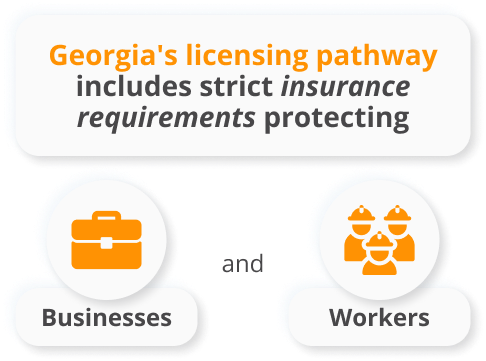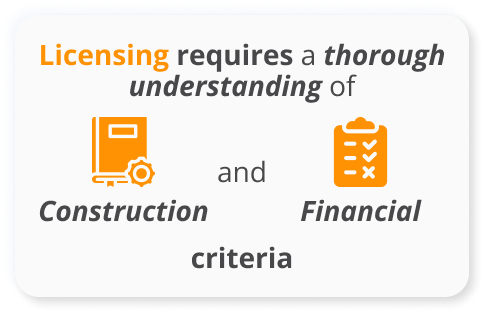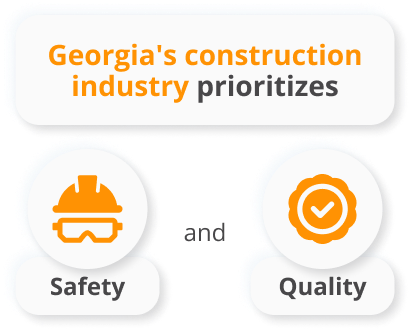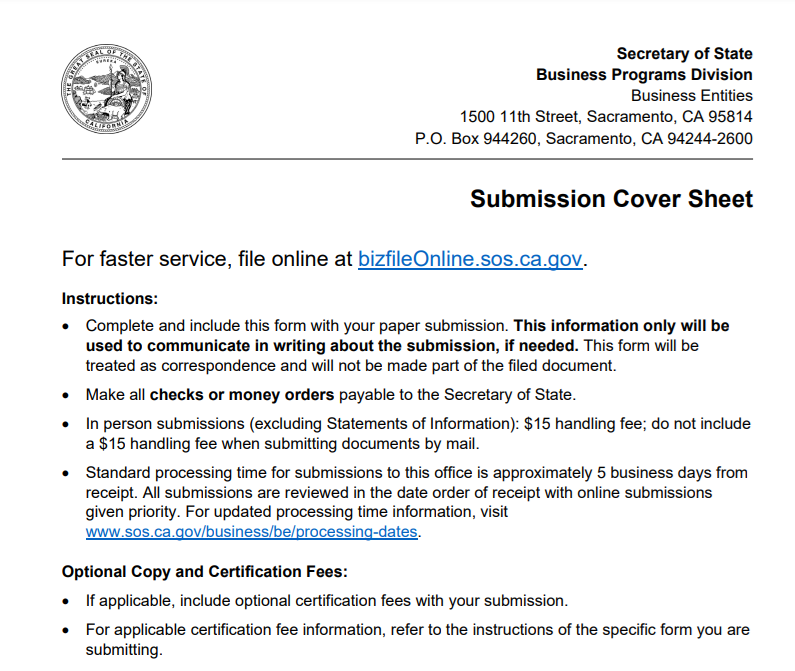Unlock Georgia’s Contractor Licensing: Your Gateway to Building Excellence! Get your General Contractor License in Georgia.
Begin your journey to becoming a licensed contractor in Georgia with our comprehensive guide. Master the requirements, understand the insurance essentials, and stay ahead with renewal insights to cement your place in Georgia’s booming construction sector.
For information on contractor licenses in Georgia, you can refer to the Georgia State Licensing Board for Residential and General Contractors.
Contact Information:
Web: Georgia State Licensing Board Residential and General Contractors
Alternate Phone Number: 512-463-6599 (For calls outside Texas)
Alternate Phone Number: 512-463-6599 (For calls outside Texas)
Phone: (844) 753-7825
Alternate Phone Number: 512-463-6599 (For calls outside Texas)
Alternate Phone Number: 512-463-6599 (For calls outside Texas)
Address:
Main Office: 214 State Capitol, Atlanta, GA 30334
The board’s website provides comprehensive resources, including application forms, exam schedules, and information on insurance and bonding requirements for contractors in Georgia.
Constructing Success: The Scope of General and Residential Contractors in Georgia
A “general contractor” in Georgia is a versatile professional, capable of managing a wide variety of construction projects without being confined to a single specialty. Yet, their power to operate is balanced by financial caps, tailored to match their economic prowess and ensure project feasibility. Get your General Contractor License in Georgia.
In contrast, “residential contractors” specialize in the realm of home construction and renovation. They are the go-to experts for creating, transforming, and repairing living spaces, with compensation models varying from fixed rates to flexible fees.
| General Contractor | Residential Contractor |
|---|---|
| Versatile professional capable of managing various construction projects | Specializes in home construction and renovation |
| Not confined to a single specialty | Expert in creating, transforming, and repairing living spaces |
| May handle a wide range of construction projects | Compensation models vary from fixed rates to flexible fees |
| Must step aside for licensed experts in specialized tasks like electrical or plumbing work | Regulations prioritize responsible and financially prudent industry |
| Operational field is broad | Ensures contractors take on projects aligned with their financial health |
| Project feasibility is a consideration | Protects clients and upholds industry integrity |
It’s crucial to note that while general contractors have a broad operational field, they must step aside for licensed experts when it comes to specialized tasks like electrical or plumbing work. This rule safeguards the quality and safety of construction work, ensuring that only qualified professionals handle such specific duties.
Georgia’s construction regulations are designed to promote a responsible and financially prudent industry. By imposing financial thresholds, the state ensures that contractors take on projects aligned with their financial health, which in turn protects clients and upholds the industry’s integrity. Dive into the world of Georgia contracting, where regulation meets qualification, paving the way for a robust and reliable construction sector.
Safeguarding Your Contracting Business: Insurance Essentials in Georgia
In Georgia, the path to becoming a licensed contractor is safeguarded by stringent insurance requirements, designed to protect both the business and its employees.

General Liability Insurance for your General Contractor License in Georgia.
- Protection Against Claims: This insurance is a cornerstone of a contractor’s risk management strategy, offering protection against various claims including property damage, personal injury, and other liabilities that could arise during construction activities.
- Minimum Coverage: Contractors are required to secure a policy with at least $500,000 per occurrence to ensure they have the financial backing to cover potential claims.
Workers’ Compensation Insurance:
- Employee Safety Net: For contractors who employ staff, workers’ compensation insurance is not optional but a legal necessity. This insurance provides coverage for medical expenses and lost wages should an employee suffer a work-related injury or illness.
- Legal Compliance: Carrying workers’ compensation insurance is not only about protecting employees; it’s also about complying with Georgia law, which mandates this coverage for businesses with employees.

Securing Your Georgia Contractor’s License: Application Steps and Financial Prerequisites
In Georgia, becoming a licensed contractor requires a thorough understanding of the construction industry and meeting specific financial criteria. The process involves following a well-defined series of steps to ensure credibility and capability.

Application Steps:
- Non-Refundable Fee: Every aspiring contractor must navigate the initial hurdle of the application process, which includes the submission of a non-refundable fee of $200. This fee is a standard part of the licensing procedure and is payable to the State Licensing Board for Residential and General Contractors.
- Submission of Documents: Applicants are required to compile a comprehensive application packet, which includes a signed, current certificate of insurance and proof of meeting the net worth requirements.
Financial Prerequisites:
- Net Worth Requirements: The financial backbone of a contractor is crucial for the state’s assurance of project completion and fiscal responsibility. General contractors must demonstrate a minimum net worth of $150,000. For those applying for a general contractor limited tier, a lower threshold of $25,000 in net worth is set.
- Insurance Verification: Alongside net worth, proof of general liability insurance is imperative, with a minimum amount of $500,000 per occurrence being necessary to proceed with the application. In addition to general liability insurance, Georgia contractors must also verify that they have workers’ compensation insurance if they employ workers. This type of insurance is crucial as it provides benefits to employees who get injured or become ill as a direct result of their job.
Eligibility and Background Checks:
- Age and Legal Status: Applicants must be at least 21 years old and must provide proof of U.S. citizenship or legal alien status.
- Moral Character: A criminal background check is conducted to ensure the applicant’s good moral character, a testament to the state’s commitment to maintaining high ethical standards within the industry.
Guide on registering a business with the Georgia Secretary of State
Step 1: Choose Your Business Structure
Before registering your business with the Georgia Secretary of State, you need to decide on the legal structure of your business. The most common business structures in Georgia are:
This is the simplest business structure to form. You are the sole owner of the business and are personally liable for all business debts and obligations.
This is a business owned by two or more people. Partners are personally liable for all business debts and obligations.
This is a business structure that provides limited liability for its owners. This means that the owners are not personally liable for business debts and obligations.
This is a complex business structure that is typically used for larger businesses. Corporations are separate legal entities from their owners, and owners are not personally liable for business debts and obligations.
Step 2: Verify Business Name Availability
Once you have chosen your business structure, you need to verify that your business name is available. You can do this by searching the Georgia Secretary of State’s business name database.
Step 3: Complete the Articles of Organization
The Articles of Organization is the document that you will file with the Georgia Secretary of State to register your business. The Articles of Organization must include the following information:
- The name of your business
- The type of business entity you are forming (e.g., LLC, corporation)
- The name and address of your registered agent
- The name and address of each member or manager (for LLCs) or each shareholder, director, and officer (for corporations)
You can Download the Articles of Organization form from the Georgia Secretary of State’s website.
Download the official forms from the Georgia Secretary of State’s website. Get your General Contractor License in Georgia.
Step 4: Submit the Articles of Organization and Payment
Once you have completed the Articles of Organization, you will need to submit it to the Georgia Secretary of State along with the filing fee. The filing fee is $100 for domestic business entities and $110 for foreign business entities.
You can submit the Articles of Organization and payment online, by mail, or in person at the Georgia Secretary of State’s office.
Step 5: Obtain an Employer Identification Number (EIN)
An Employer Identification Number (EIN) is a federal tax ID number that is required for businesses that have employees, pay excise taxes, or file certain tax returns. You can apply for an EIN online, by mail, or by fax.
Step 6: Obtain Business Licenses and Permits
Depending on your business type and location, you may need to obtain additional business licenses and permits. You can contact your local government or the Georgia Department of Revenue for more information.
Required Documents
The following documents are required to be submitted along with the Articles of Organization:
- Notarized Affidavit: This is a statement that you have met all of the requirements for registering your business. You can find a copy of the notarized affidavit on the Georgia Secretary of State’s website.
- Transmitting Form: This form is used to track the filing of your Articles of Organization. You can find a copy of the transmitting form on the Georgia Secretary of State’s website.
- Payment: You must submit the filing fee along with your Articles of Organization. The filing fee is $100 for domestic business entities and $110 for foreign business entities.
Additional Resources
For more information on registering a business with the Georgia Secretary of State, please visit the following websites:
License Issuance: Finalizing Your Professional Status in Georgia
Once the application and all supporting documents are submitted, the Georgia State Licensing Board for Residential and General Contractors undertakes a thorough review. Here’s what happens next:
- Review and Decision: The board assesses the application to ensure all requirements are met. If everything is in order, they will approve the application.
- Notification: Applicants will receive notification of the board’s decision. Approval means you are now a licensed contractor in Georgia.
- License Delivery: Upon approval, the contractor’s license is issued. The license is a formal credential, signifying your authority to undertake construction projects in Georgia according to your license type.
License Renewal: Maintaining Your Professional Edge
A contractor’s license in Georgia isn’t indefinite; it requires renewal every two years. Here’s how to stay current:
- Continuing Education: Contractors must complete 14 hours of continuing education within each two-year cycle. This education ensures that contractors remain up-to-date with industry standards, regulations, and emerging technologies.
- Renewal Application: A renewal application must be submitted along with evidence of completed continuing education.
- Renewal Fee: A fee, which is part of the renewal process, must be paid. This fee maintains your registered status and covers administrative costs.
- Timely Submission: To avoid lapses in licensure, it’s crucial to submit renewal applications and fees before the expiration date of the current license.
Frequently Asked Questions (FAQ)
These are common questions about General Contractor License in Georgia.
A general contractor in Georgia can undertake a wide range of construction projects without limitations, except for specialized tasks like electrical or plumbing work. A residential contractor focuses specifically on home construction and renovation.
Yes, Georgia has established reciprocity agreements with Louisiana and Tennessee, allowing contractors licensed in those states to obtain a Georgia license under certain conditions.
Contractors must obtain general liability insurance with a minimum coverage of $500,000 per occurrence. Proof of this insurance must be submitted with the licensing application.
The application fee for a contractor’s license in Georgia is a non-refundable $200.00, payable to the State Licensing Board for Residential and General Contractors.
General contractors must demonstrate a minimum net worth of $150,000, while general contractor limited tier applicants must show a minimum net worth of $25,000.




